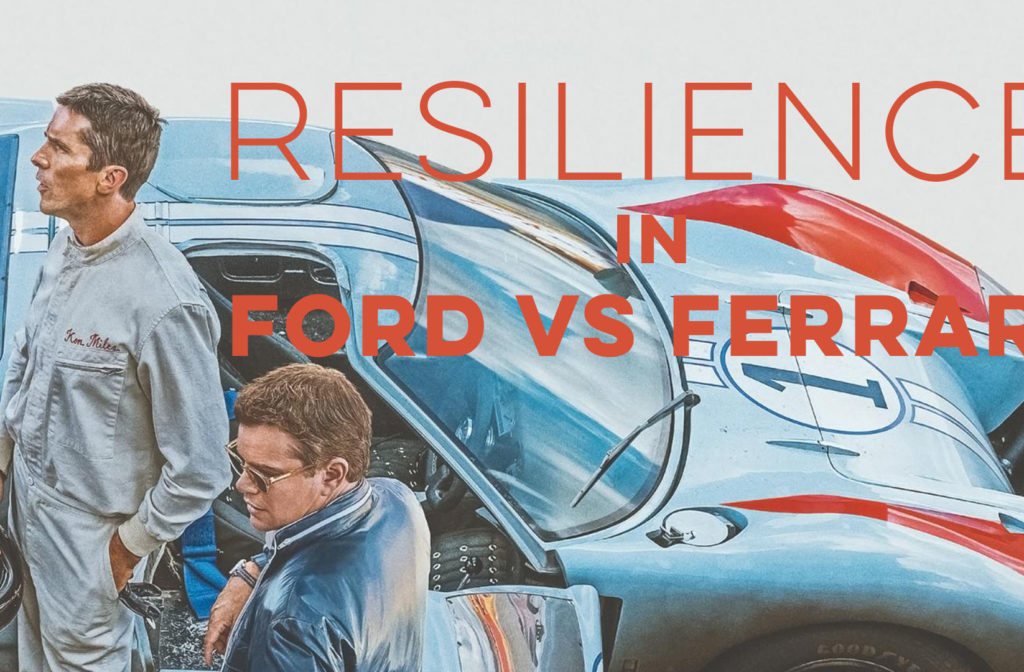The 2019 film “Ford vs Ferrari” starring Matt Damon and Christian Bale focuses on the turbulent relationship between two legends of the world of motor sports.

By Chris Gearing and Dr. Sylvia Gearing
The 2019 film “Ford vs Ferrari” starring Matt Damon and Christian Bale focuses on the turbulent relationship between two legends of the world of motor sports. Their challenge lies in defeating the racing monolith Ferrari using only Ford models. Between the crushing bureaucracy and lack of access to high grade materials, these men had to tap into deep wells of resilience and perseverance to accomplish their goals. Here are some of the ways these characters showed resilience in the film.
The thinking styles most closely associated with resilience:
Challenge – Resilient people view difficult situations and setbacks as challenges, not as immobilizing events. We are well aware that we will be challenged by unexpected and unpredictable events. view setbacks and even failures as challenges that we can overcome successfully. This viewpoint motivates us to address the problem in a positive and proactive way. We actively lean into the uncomfortable emotions and accept that although tough times are inevitable parts of life, we have the “right stuff” to handle it.
When we approach our problems with our hope and self-initiative, we are less emotionally dysregulated. Instead of a difficult experience becoming an insurmountable obstacle, it becomes an opportunity for “testing our mettle” and for eventual triumph.
Commitment – When we are resilient, we possess a strong sense of commitment to something meaningful in our lives. We attach our own psychological identity to the cause, belief system or mission that has deep significance for us. That commitment is highly motivating, and we are engaged and focused on supporting that belief system or goal. That commitment infuses our lives with purpose, direction and passion. We are willing to sacrifice for a goal bigger than ourselves. We are using our distress tolerance skills as we pursue our goals.
Control – Resilient people spend their time and energy focusing on situations and events that we have control over. We do not spend endless amounts of time worrying about things that they cannot change or control. Life presents certain unchanging realities that are painful, unjust and difficult to accept. But when we put our efforts where they can have the most impact, we take back our control. We feel that we are actually addressing the issue proactively. A sense of self effectiveness is common when we channel our energies to solvable problems. Even when true mastery or resolution of a challenge is not possible (e.g., when a situation is not possible to control or it is a trauma from the past), we work to find what possibilities do exist for mastery and purpose pursue them with renewed energy.
Connection – Feeling connected to others is essential in remaining resilient and hopeful. WE want to feel understood and to understand others. Connection creates a shared perspective and emphasizes our common humanity (Kristin Neff). Social connection decreases the feelings of learned helplessness and rumination. We hear the encouragement of others and their stories which helps us to maintain a stable and accurate perspective. Again, and again, we are reminded that we can overcome the problem at hand because others have also been successful in similar circumstances.
During most of life, we are all experiencing emotions that are challenging and confusing. The timely support and shared experience of another trusted person can make a critical difference in pushing through a difficult time or recovering from a setback. Sustained resilience requires the connection to others and to their invaluable support.
Back to Blog